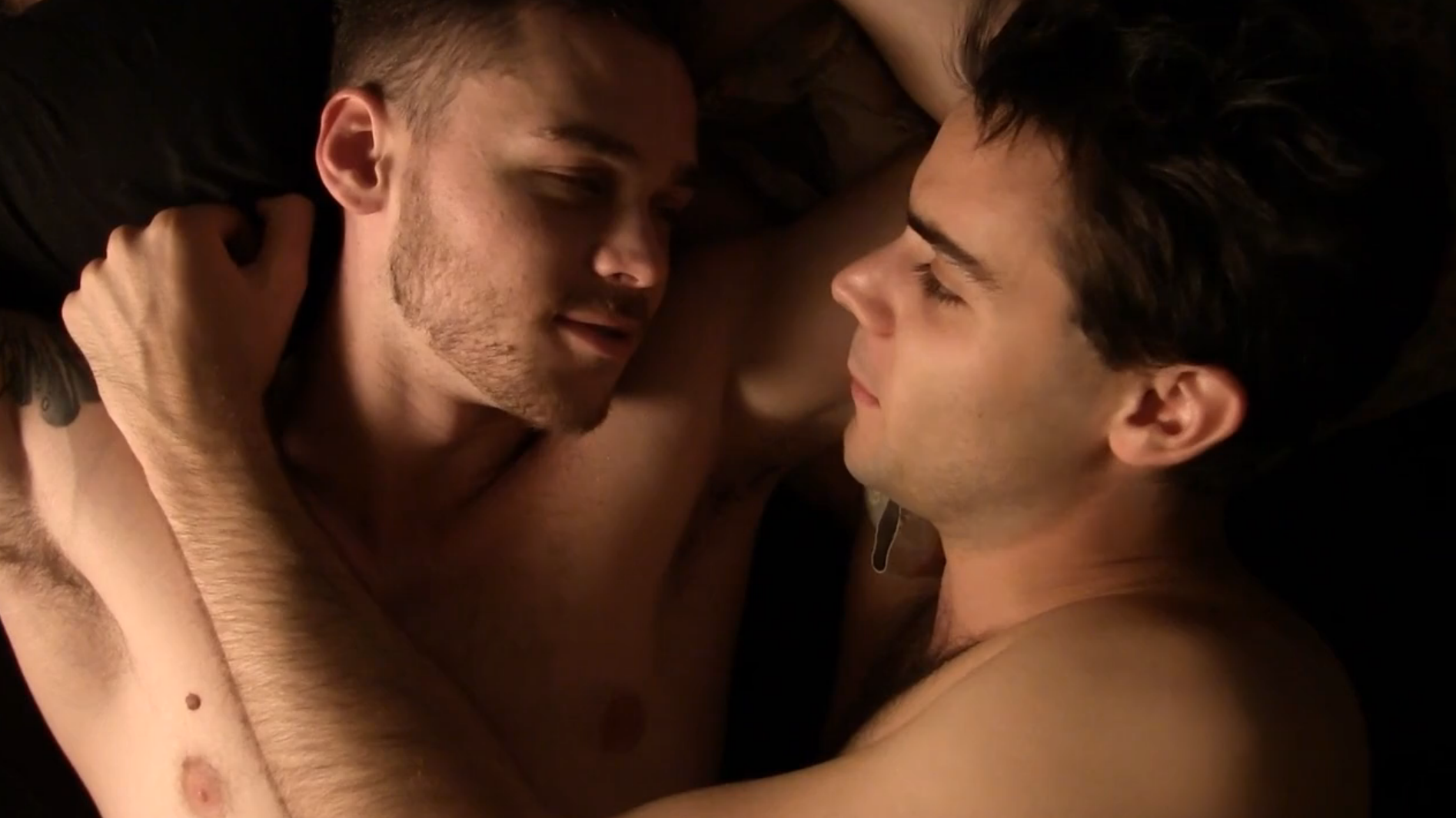
The strangely melancholic and bittersweet Getting Go: the go doc project is not necessarily melancholic through the intentions of its director and writer Cory Krueckeberg. After all, I think he is trying to convey something all of us have read about, many of us have dreamt about and some have had the chance to actually experience: an intense summer fling whose passion burns reason.
And Krueckeberg’s visually and audibly dazzling debut does just that through music montages and the documentary-style lens perpetually carried by its lead character, Doc (Tanner Cohen).
The most fascinating part is that one should not be fooled by this adorably awkward, Hamlet-quoting filmmaker-in-making. His true colors come out through his obsessions–the unhealthy kind, perpetuated by the onslaught of hypersexual images paired with the security of hiding behind a computer screen–ultimately making him inauthentic and downright insensitive to the consequences of his actions.
 The epicenter of Doc’s obsession–the incredibly eloquent and always contradictory (in the good sense) go-go dancer redundantly named Go (Matthew Camp)–soon becomes Doc’s reality. The always-recording filmmaker follows Go’s nightlife from the internet into the streets, as the two begin to explore not just Go, but Doc.
The epicenter of Doc’s obsession–the incredibly eloquent and always contradictory (in the good sense) go-go dancer redundantly named Go (Matthew Camp)–soon becomes Doc’s reality. The always-recording filmmaker follows Go’s nightlife from the internet into the streets, as the two begin to explore not just Go, but Doc.
The melancholy sets in as we uncover Doc’s many other obsessions, of which the majority are surface-level and self-centered: his perpetual insistence that Go talk about physical traits and his sexual history, his almost needy-like conversation with his blog followers that he seems to be appeasing more than himself, and his all-too-of-the-moment insistence on leaving nothing to intimacy.
Go, on the other hand, is not just physically sexy with a body which one could play Quarters off of, but is vastly more complex: he thinks the best part of his body is his brain, wears a hat while dancing to avoid eye-contact with his gogglers, and even witty and humble about tongue-in-cheek topics like his penis size. And though he might be comfortable with little clothes on, he is deeply aware of his surroundings, of privilege, and of the possibility of human connection.
Go is the sweet to the bitter of Doc. Go has dreams of embracing the oddities of the world while Doc wants so desperately to be normal–whatever that particularly means.
 And even more sadly, Go is the cog used and abused by Doc for his awkward, self-driven experiment in figuring out who he is. The noble thing is that one should do this on their own, without hurting anyone but one’s self–as Go did, bouncing from experiment to experiment but not necessarily at the cost of someone else. For Doc, after hiding so staunchly behind his screen, has ultimately done what every computer screen does: turned its subject into an object, and in this case, turned a human being into a stepping stone.
And even more sadly, Go is the cog used and abused by Doc for his awkward, self-driven experiment in figuring out who he is. The noble thing is that one should do this on their own, without hurting anyone but one’s self–as Go did, bouncing from experiment to experiment but not necessarily at the cost of someone else. For Doc, after hiding so staunchly behind his screen, has ultimately done what every computer screen does: turned its subject into an object, and in this case, turned a human being into a stepping stone.
The ending–all too niftily wrapped up with escapism and self-empowerment tropes emanating from Doc–leaves a deep sense of sadness for Go and the gay-old question: Has the gay male community’s obsession with physical perfection and our own desires obscured our ability to empathize and look beyond ourselves?
Getting Go: the go doc project will screen on Sunday, September 8 at 9PM at the Art Theatre, located at 2025 E 4th Street. For tickets and more information, visit www.qfilmslongbeach.com.
Read more:

